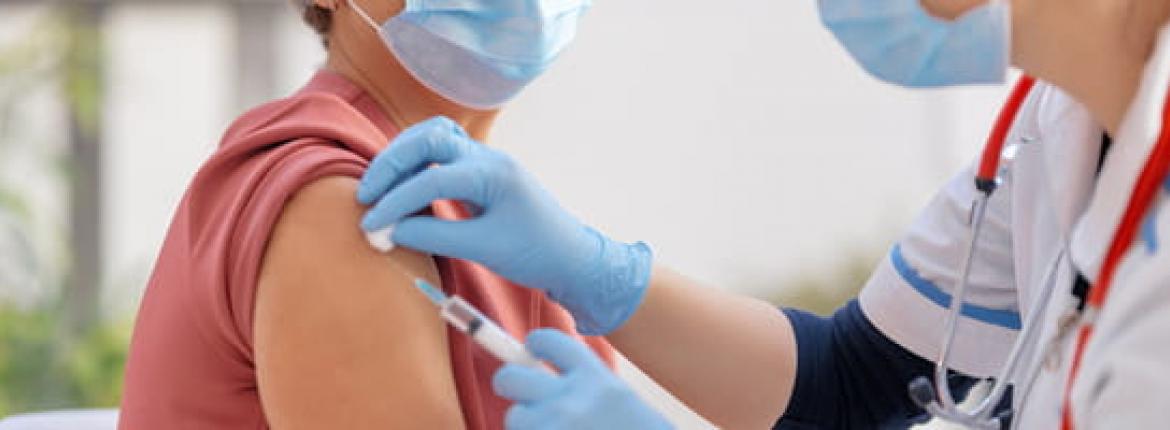
As COVID-19 vaccine programmes continue to roll out globally, we are seeing the myths around the vaccines also increasing. Providing employees with facts is a key initiative that workplaces can undertake.
Organisations should monitor local COVID-19 vaccine availability, understand who is eligible and when and how vaccination can be received while keeping their policies and communications in line with the guidelines from local health authorities.
International SOS health experts break down nine of the most common misconceptions regarding COVID-19 vaccines, we have encountered so far.
Myth 1: COVID-19 vaccines are not safe because they were developed so quickly.
Fact: The COVID-19 vaccines are safe and have been approved by regulatory authorities before being rolled out.
Millions have now been vaccinated and reports of serious side effects have been very rare. The worldwide impact of this pandemic has caused the pharmaceutical industry to invest heavily in researching and producing COVID-19 vaccines. Several phases were conducted in parallel, thus shortening the overall development timeline. No shortcut was taken; every vaccine candidate had to go through the strict process of clinical trials and safety reviews by respective global and national Stringent Regulatory Authorities.
Myth 2: You can get COVID-19 from the vaccines.
Fact: You cannot get COVID-19 through being vaccinated.
For viral diseases to set in, a live virus needs to be able to make enough copies of itself in the body. None of the currently authorised COVID-19 vaccines contain live virus. You might experience mild flu- like symptoms after the injection such as fatigue, body aches and fever. It is a normal reaction of your immune system to the vaccine and generally will stop after a day or two.
Myth 3: I have already had COVID-19 so I don’t need to be vaccinated.
Fact: Most authorities advise even people who have had COVID-19 infection to be vaccinated, although you may be advised to wait for at least 90 days after your infection.
Speak to your doctor for an individual recommendation. We do not yet know how long the protection from your immunity developed by a COVID-19 infection will last.
Myth 4: The fatality rate of COVID-19 is so low, so I do not need to be vaccinated.
Fact: COVID-19 vaccines protect yourself, your family, colleagues and your community.
They reduce the risk of severe infection and hospitalisation. People who are vaccinated are probably less likely to transmit the disease. When the majority of the population are vaccinated it will protect the community, including the vulnerable and those who cannot be vaccinated. While vaccination is voluntary, all who are medically eligible are encouraged to be vaccinated.
Myth 5: There is no need for mask wearing and social distancing after receiving COVID-19 vaccination.
Fact: Everyone must remain cautious and continue to wear masks, practice social distancing and observe enhanced hygiene routines.
While vaccines are effective, they do not stop every case of COVID-19 infection and transmission, so these precautionary measures continue to be important.
Myth 6: The vaccine will alter my DNA.
Fact: The COVID-19 vaccine does not alter DNA.
Two of the first COVID-19 vaccines approved for emergency use are “mRNA” vaccines (messenger RNA).
Upon injection, mRNA vaccine will instruct the cells in your body to produce the viral protein that triggers an immune response against COVID-19 virus. mRNA does not insert itself into your DNA, thus it does not alter your gene DNA (it cannot be transmitted to the next generation). The mRNA vaccine will naturally degrade & be eliminated from your body within 48-72 hours.
Myth 7: People with underlying conditions should not be vaccinated.
Fact: Some people are not recommended to receive the vaccine. However, there are many conditions which do not preclude you from being vaccinated.
Local health authority guidelines should be followed in determining medical eligibility, along with speaking to your doctor for an individual recommendation.
Myth 8: COVID-19 vaccines are not effective against the new variants.
Fact: Experts are watching this very carefully. If a change in vaccine needs to be made, the vaccines can be quickly adjusted for new strains, in a similar way that flu vaccines are adjusted each year.
It is important to be immunised as soon as possible when the vaccine is offered to you and continue to practice preventive measures to break the chain of infection.
Myth 9: Severe side effects of the COVID-19 vaccines are common.
Fact: Reports of serious side effects are very rare.
Minor expected side effects, such as a sore arm at the injection site and a mild fever, are common. Discomfort usually subsides after a day or two. Side effects may be more pronounced after the second vaccine dose.
If you have any questions or doubts about COVID-19 vaccination, reach out to your trusted doctors and health providers for clarification.
Click here to learn more about Workforce Resilience in a COVID-19 World
https://www.internationalsos.com/medical-and-security-services/workforce-resilience



